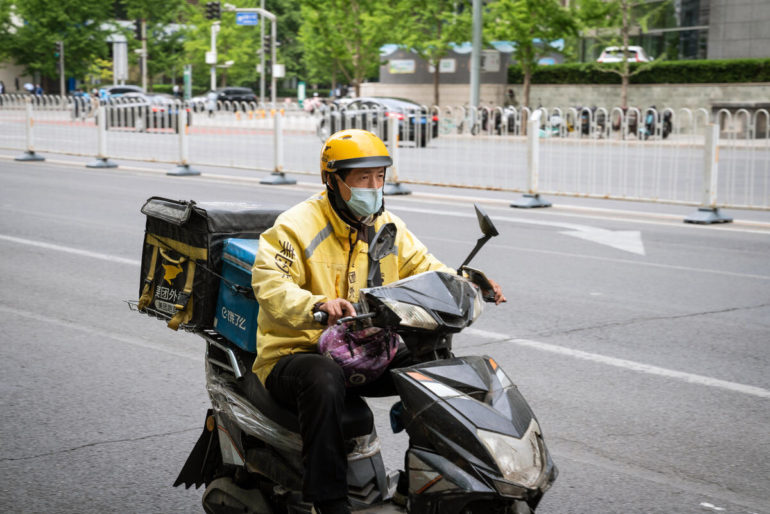Chinese regulators have ordered local food delivery platforms to provide delivery riders with minimum wages, access to insurance coverage, and improved work conditions, according to a state-run media outlet.
Issued on Monday by the State Administration for Market Regulation (SAMR) and six other government agencies, Xinhua News Agency said the order was made as part of efforts to improve the rights given to food delivery riders.
Addressing how algorithms should be used when assessing food delivery rider performance, the SAMR reportedly said the “strictest algorithms” should not be used as an assessment requirement and delivery time requirements should be appropriately relaxed.
The order reportedly also states that platforms should participate in social insurance programs for the food delivery personnel, and people working for other types of employers are encouraged to also implement the guidelines. It also stressed that food delivery platforms needed to place more effort into ensuring traffic safety for food delivery riders while calling for more smart kiosks and the development of smart helmets.
The policy guidelines are now one among many that have been released by the Chinese government as it continues to ramp up scrutiny against local tech giants. In the past month alone, the Chinese government has ordered Tencent to end its exclusive contracts with music copyright holders in order to provide more competitive parity in that market, removed Didi from Chinese app stores and placed it under a cybersecurity review, and banned people aged under 16 from appearing in content within online live-streaming and video platforms.
When the CAC announced the ban, it also fined various digital platforms, such as Kuaishou, Tencent QQ, Taobao, Sina Weibo, and Xiaohongshu, for displaying soft pornographic images of children.
Prior to this month, Meituan and Tencent, along with Alibaba, were already put under government scrutiny, with Alibaba being hit with a record 18.2 billion yuan fine in April. 33 other mobile apps have also been called out by Beijing for collecting more user data than deemed necessary when offering services.



